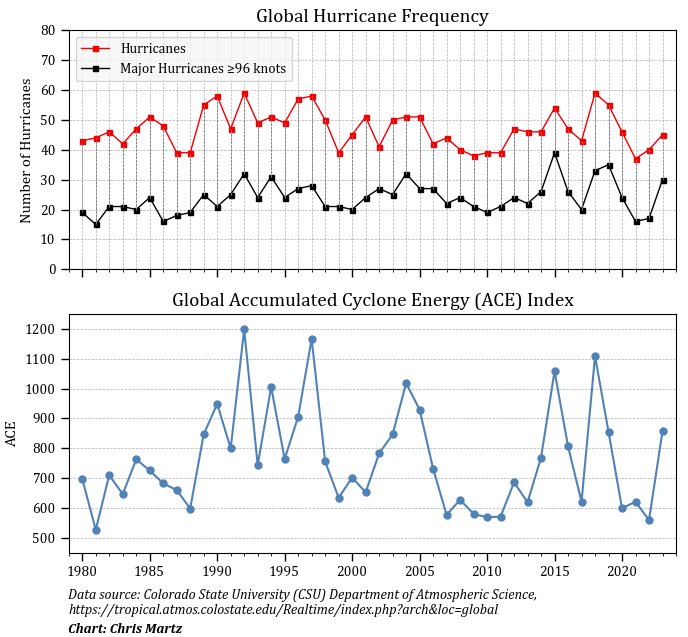Let me rephrase that for ya.
I don’t care whether you’re buying what I’m saying or not. The data doesn’t care about your feelings and neither do I.
If tropical cyclones (TCs) were becoming stronger, that would be evinced in the observational data. We would be seeing:
• More… https://t.co/BiVoLe11K7 pic.twitter.com/53RNpti1VY
— Chris Martz (@ChrisMartzWX) October 8, 2024
Hi @JohnRich.
There have been at least 146 hurricanes that have formed in the Gulf of Mexico since record keeping began in 1851. The plot below shows their tracks.
Milton isn’t unusual in this sense. What is atypical is that it is tracking eastward. https://t.co/2yFVmoiWUt pic.twitter.com/1X4cRm5BYv
— Chris Martz (@ChrisMartzWX) October 8, 2024
Hi Bill,
Fun fact: Kamala Harris cannot stop hurricanes. https://t.co/wMpVPfFfxI
— Chris Martz (@ChrisMartzWX) October 8, 2024
Let me explain this to you.
Hurricane kinematics don’t care about the atmospheric CO₂ level — at least not significantly. Therefore, taxing carbon is not going to reduce their occurrence nor severity.
The estimated cost to achieve “net zero” emissions in the U.S. by the year… https://t.co/LuJYh2PoKZ
— Chris Martz (@ChrisMartzWX) October 8, 2024
Hi there, Dr. Francis (@JFrancisClimate).
Hurricane Wilma's pressure dropped 54 hPa in 6-hours on October 19, 2005. That was nearly 20-years ago. So, no, I'm not convinced Milton's smaller pressure falls are evidence of there being a “climate emergency.”… https://t.co/PXwhR73SgQ
— Chris Martz (@ChrisMartzWX) October 8, 2024
#HurricaneMilton and #Florida housing growth since 1940. #disaster #FLwx #ExpandingBullsEye pic.twitter.com/vih7u3xjbc
— Stephen M. Strader (@StephenMStrader) October 7, 2024
Stills pic.twitter.com/uA0tKDN7jI
— Stephen M. Strader (@StephenMStrader) October 7, 2024


